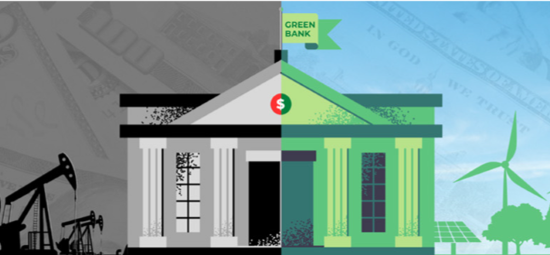With 2024 coming to an end and a mere quarter century until we reach the year 2050 and net zero, what is our current fossil fuel reality? What are banks doing to mitigate climate change by denying capital to the industry?
If you are invested in fossil fuel companies then the current news about continued profits, healthy dividends and record incomes will give you comfort. On the other hand, if you are a concerned citizen about climate change the news is foreboding. The industry is making out like a bandit enabled by loans and financial guarantees from banking institutions around the planet while global temperatures and sea levels climb and extreme weather events are more frequent and worse.
Since the Paris Climate Agreement of 2015, the 60 largest private banks have poured US $6.9 trillion into the fossil fuel industry. In 2023 alone, the banks gave the industry $705 billion. It is the behaviour of banks, therefore, that represents one of the largest impediments to achieving net zero emissions for our planet by 2050. Bank behaviour continues to encourage the fossil fuel giants who obfuscate, lie and greenwash the public about being environmentally responsible and committed to net zero.
If banks were to stop handing out money, and if governments were to end fossil fuel subsidies, I have no doubt that funding for new projects would quickly dry up and the planet would begin to move in the right direction environmentally.
Who are the biggest banking offenders? You can find them across the planet. Here is a partial list:
- Six U.S. banks, JP Morgan Chase, Citi, Wells Fargo, Bank of America, Morgan Stanley and Goldman Sachs, have committed $1.8 trillion in underwriting fossil fuel projects.
- The five largest Canadian banks, Royal Bank, Scotiabank, TD Bank, Bank of Montreal and the Canadian Imperial Bank of Commerce provided $104 billion last year and overall since 2015 over $1.2 trillion in loans to the industry. Canadian banks because of their willingness to continue funding oil sands projects are increasingly seen as lenders of last resort.
- In Europe, banks remain heavily invested in the fossil fuel industry. Since the Paris Agreement, these banks have poured $1.3 trillion into fossil fuel loans. The biggest lenders include Barclays, Santander, Deutsche Bank, BNP Paribas, HSBC and Crédit Agricole, Société Générale.
- Elsewhere, Japan’s three major banks, Mizuho, Mitsubishi UFJ Financial, and Sumitomo Mitsui Trust are heavily into loans to the industry. Chinese banks continue to finance coal projects. Singapore’s DBS Bank continues making loans to the industry as do major Indian and Indonesian banks.
Where banks are professing their desire to cut investments, some have indicated a willingness to stay in the game if the fossil fuel company adds carbon capture and storage (CCS), or hydrogen and ammonia production to its existing projects. For banks committed to pulling their money from the industry, you can count the total using the fingers of your two hands.
So what can you do if you have an account in one of these banks and are concerned with the future health of the planet and the generations of people that follow?
There are several actions you can take but before you do confirm that your bank is vested in fossil fuel projects.
Several conservation organizations monitor the banking and financial industry related to fossil fuels and unethical investments. Among these are The Rainforest Action Network, Bank Track, Oil Change International, and The Sierra Club. These environmental industry watchdogs compile an annual fossil fuel finance report entitled Banking on Climate Chaos.
You can download the 2024 edition of the report to check and see if the bank you use is listed as an offender. Then you can visit, call or email the bank and express your concerns using talking points from sites like Fossil Free Funds.
If feasible, consider switching to a bank the industry watchdog report identifies as environmentally responsible.
If you have retirement investments and mutual funds, check to see if the bank or financial institution managing your money is listed in the report as an offender. Also, check the investment mix in your portfolio. I did this a number of years ago and found several companies on the offender list and asked my advisor to look for alternative investments. Don’t feel intimidated about discussing a switch to fossil-free investment funds. This a relatively new field for the financial industry and your advisor may appreciate the information you provide.
A good reference site to help you learn more is Fossil Free Funds.









